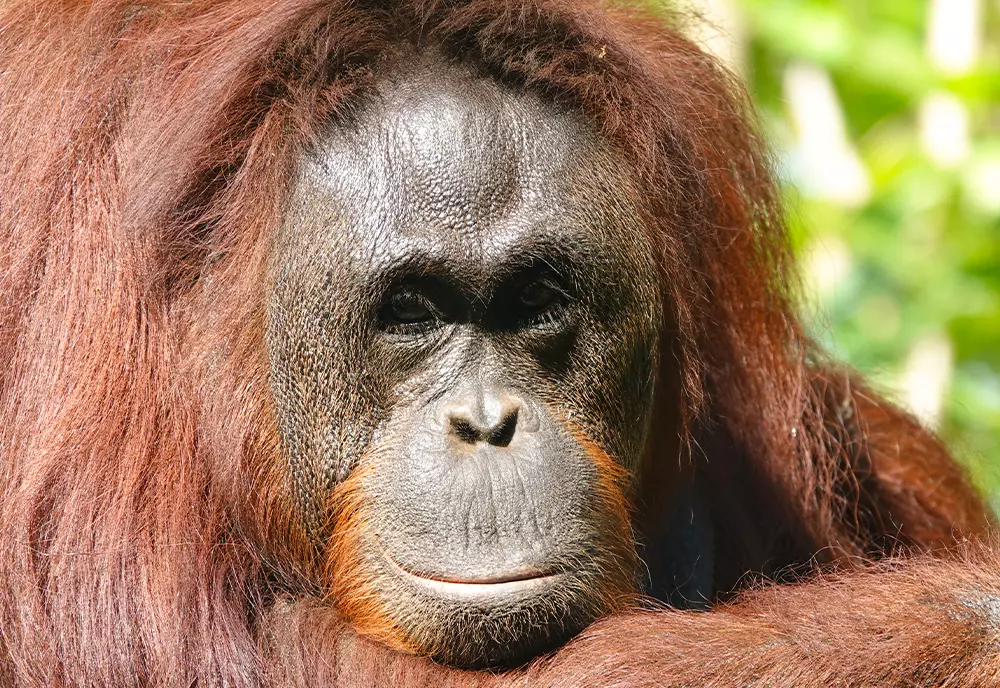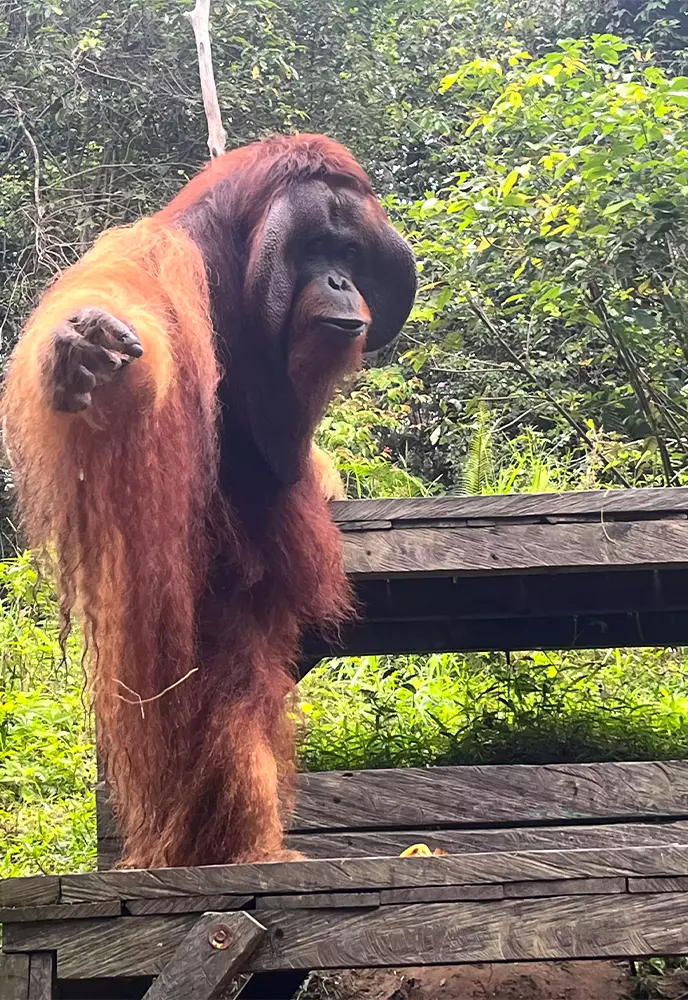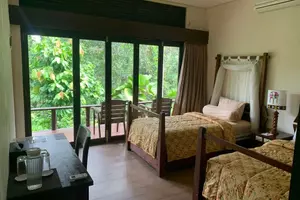

Samboja Lestari Orangutan Volunteer Project
This project offers you the chance to work on enrichment with captive orangutans and sun bears at the world-renowned Samboja Lestari Rescue Centre.
Speak To A Travel Expert
Activities
Your main activities whilst volunteering with orangutans at Samboja Lestari include husbandry, enrichment, reforestation, maintenance and construction work for both the orangutans and the sun bears resident here. You will be treated as pseudo-staff whilst on the project, meaning full participation in all of the centre's work.
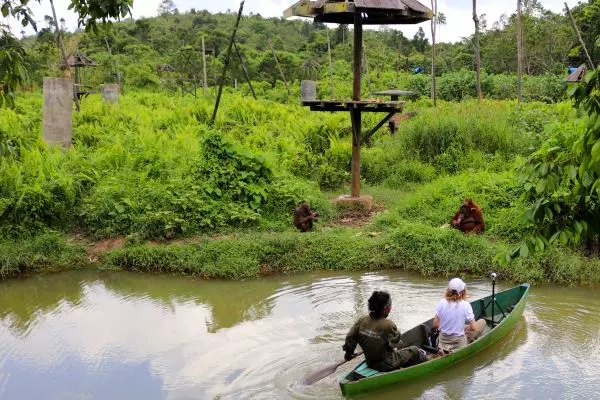
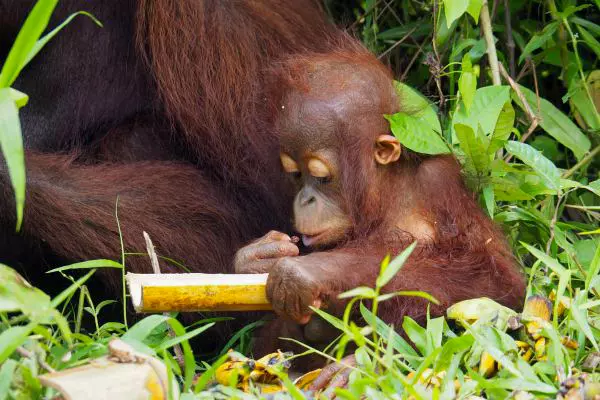
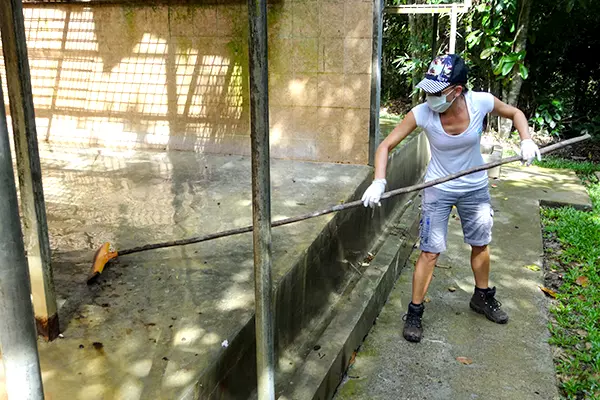
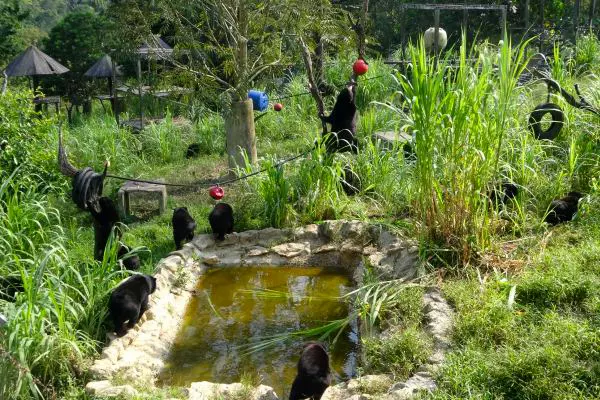
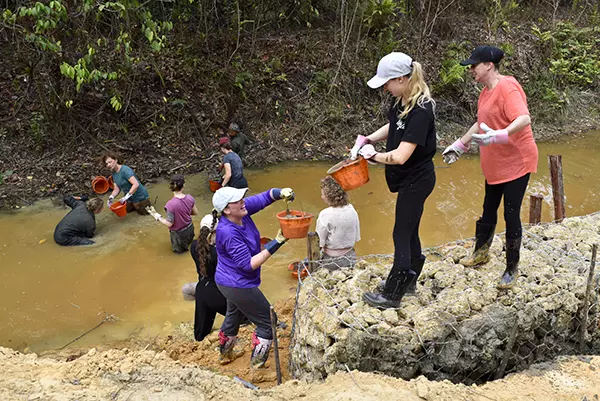
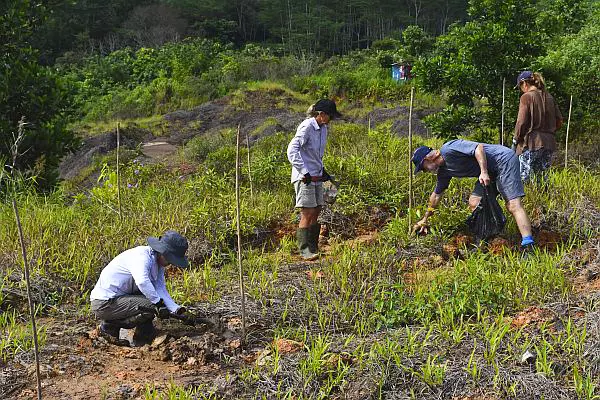
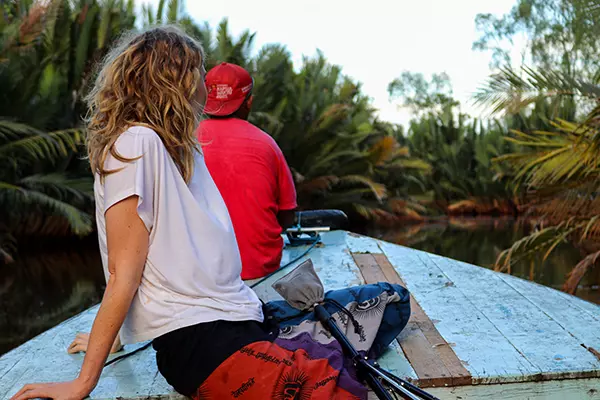
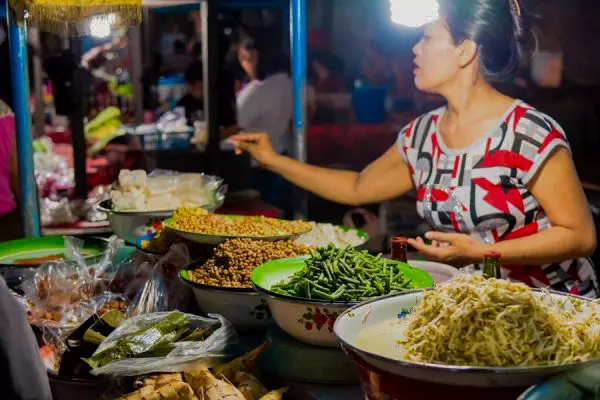
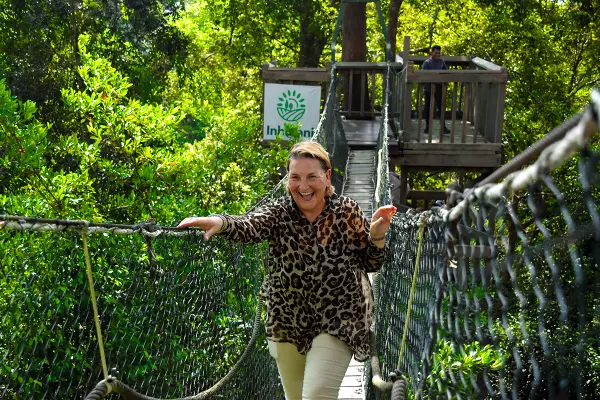
Itinerary
Below is an example of a typical two-week itinerary. Please note, however, some activities may be subject to change during the time of your stay as they are dependent on weather conditions and the requirements of the project at the time.
Durations & Prices
Accommodation
Volunteer Accommodation
You will be accommodated at the stunning Samboja Ecolodge during your time on the project, all built with recycled materials! Each room comes equipped with air conditioning, mosquito nets, an en-suite bathroom with hot water, and a Western-style toilet. Rooms are allocated on a twin-share, same-sex basis (unless travelling as a couple, in which case you will be accommodated together), and there is the option to pay a single supplement ($540 for a 12-night stay or $1,148 for a 26-night stay) to have a private room.
Within the lodge, there’s a relaxed social area where you and your team can switch off after a busy day. With a pool table and an on-site bar, it’s an easy place to unwind and spend time together.
Meals & Beverages
You’ll be fuelled with three hearty meals a day while on the project, all served buffet-style in the lodge dining area. Breakfast includes a varied spread of cereals, eggs, rice or noodle dishes, fresh fruit, and fruit juice. Lunches and dinners typically feature rice with chicken, seafood, mutton or beef, alongside vegetables, with noodles often on the menu. Vegetarian options include tofu and soybean dishes, ensuring everyone is well catered for. (Please contact us before booking if you have a severe nut allergy.)
Project Details
When is the best time to volunteer?
This project is based at a rehabilitation sanctuary, and there are orangutans and sun bears here year-round, meaning there is no real preferred time to volunteer regarding the animals.
The weather is also quite constant throughout, and whilst it can rain at any time of the year due to the rainforest climate, you can expect mostly dry weather with temperatures averaging 29-31°C (84-88°F) in the daytime and 24°C (75°F) at night.
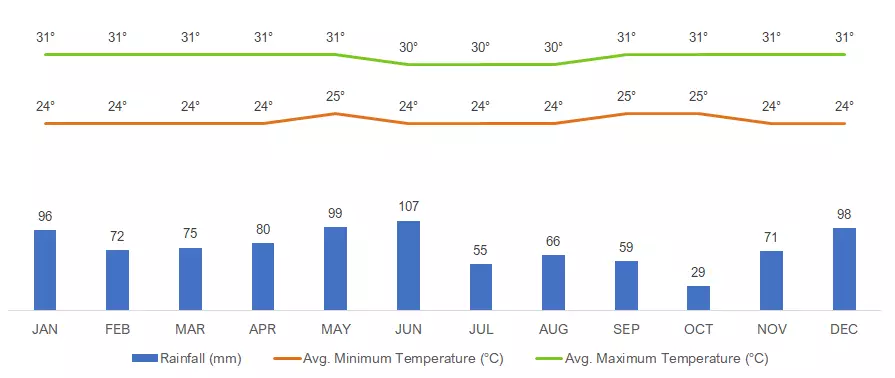
Getting There
You will need to fly into Balikpapan Airport on your project start date, arriving between 7am-6:15pm, with most international flight routes going via Jakarta International Airport (Soekarno-Hatta International Airport) or Singapore. Upon arrival at Balikpapan Airport, you will be met by a project representative in the arrivals hall who will then transfer you to Samboja Lodge. This transfer takes approximately one hour.
If you arrive a day early and stay in a hotel close to Balikpapan Airport, we can arrange your transfer to Samboja Lodge from there.
Visa Requirements
To join this project, you will need a tourist visa which you can get on arrival in Indonesia. The cost of this visa is approximately US$35.
If you plan to stay in Indonesia for longer than 30 days, you can get a 30-day tourist visa on arrival and then extend this visa for a further 30 days by going to the immigration office in Balikpapan (which we can arrange for you).
We advise that you speak to the embassy in your country to see if there are any requirements for travel. Please note that your passport must be valid for a minimum of six months from your date of entry into Indonesia.
Fitness & Skills
The work undertaken on this project can be quite physical, often in humid conditions, so a moderate level of fitness is required. No skills or experience are required; all that we ask is that you arrive with a commitment to the project and its aims, a passion for wildlife conservation, and the willingness to work alongside your team!
Vaccinations & Medical Requirements
To volunteer on this project, you must provide negative test results to show you do not have HIV or Hepatitis B or C prior to arrival. A chest x-ray or QuantiFERON blood test to show you do not have Tuberculosis is also required. These are ESSENTIAL, as without them, you will be unable to join the project.
Due to the Covid-19 pandemic, additional safety measures have also been introduced to ensure the safety of all volunteers, staff members and the orangutans. These can be viewed by clicking here and may change at any time.
No Contact Policy
We are often asked whether or not volunteers will have the chance to touch or play with the orangutans whilst on this project. Our answer to this question is, and always will be no, and this is for good reason.
Orangutans are highly susceptible to human diseases, many of which are far more dangerous to an orangutan than they are to us. Also, an environment of constant change, with new volunteers going to the project every two or four weeks and being in contact with the orangutans would be very detrimental to the orangutans' well-being. With no consistency in their lives, behavioural problems arise. They also have a tendency to begin to trust humans which is damaging should they be released back into the wild, as they will become easy targets for poachers. Finally, an orangutan is around 7 times stronger than an adult male human so a no-contact policy is just as crucial for your safety as theirs.
That is not to say that you will have no interaction with the orangutans, it simply means that you will have no direct contact with them. You will still observe them on a daily basis and see how your contribution to their husbandry and enrichment makes a real difference to the lives of these apes. For more information, please view our article on hands-on contact with orangutans.
Videos
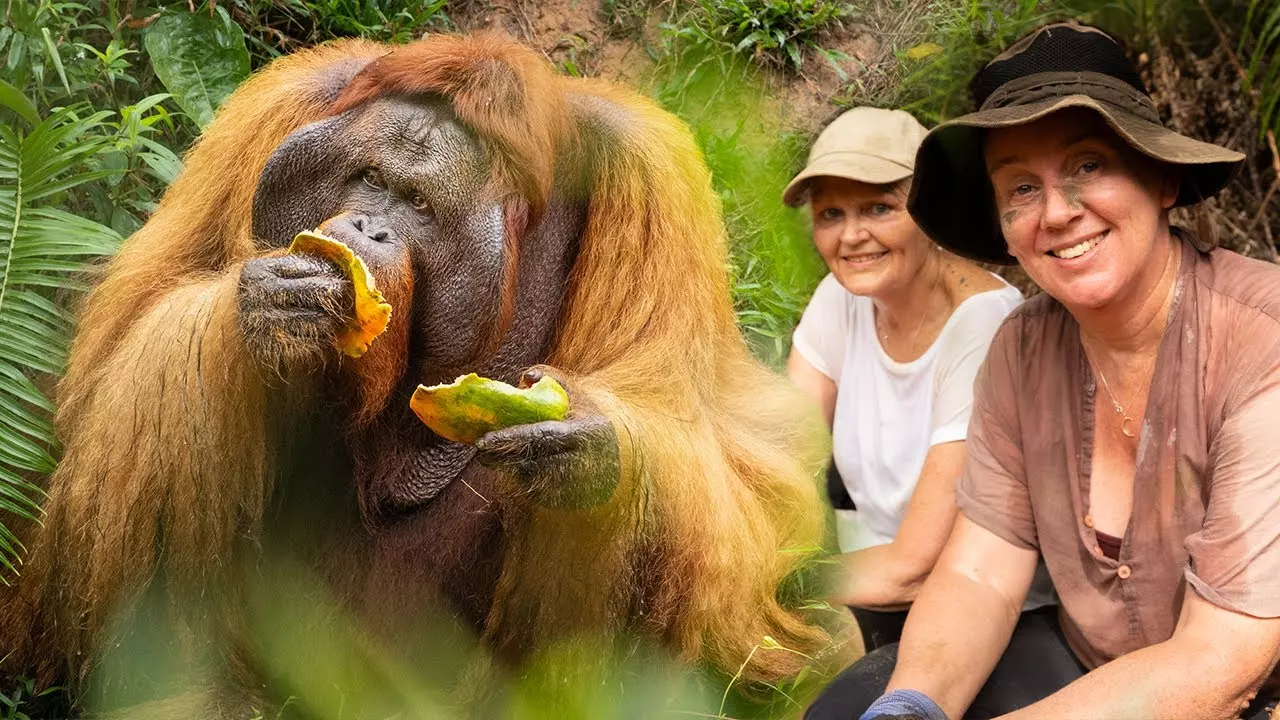
Discover the Samboja Lestari Orangutan Project
Join us in Borneo for an unforgettable adventure with orangutans and sun bears! From creating enrichment and assisting with construction projects, to visiting a local night market and trekking through one of the world's oldest primary rainforests, this project has it all!
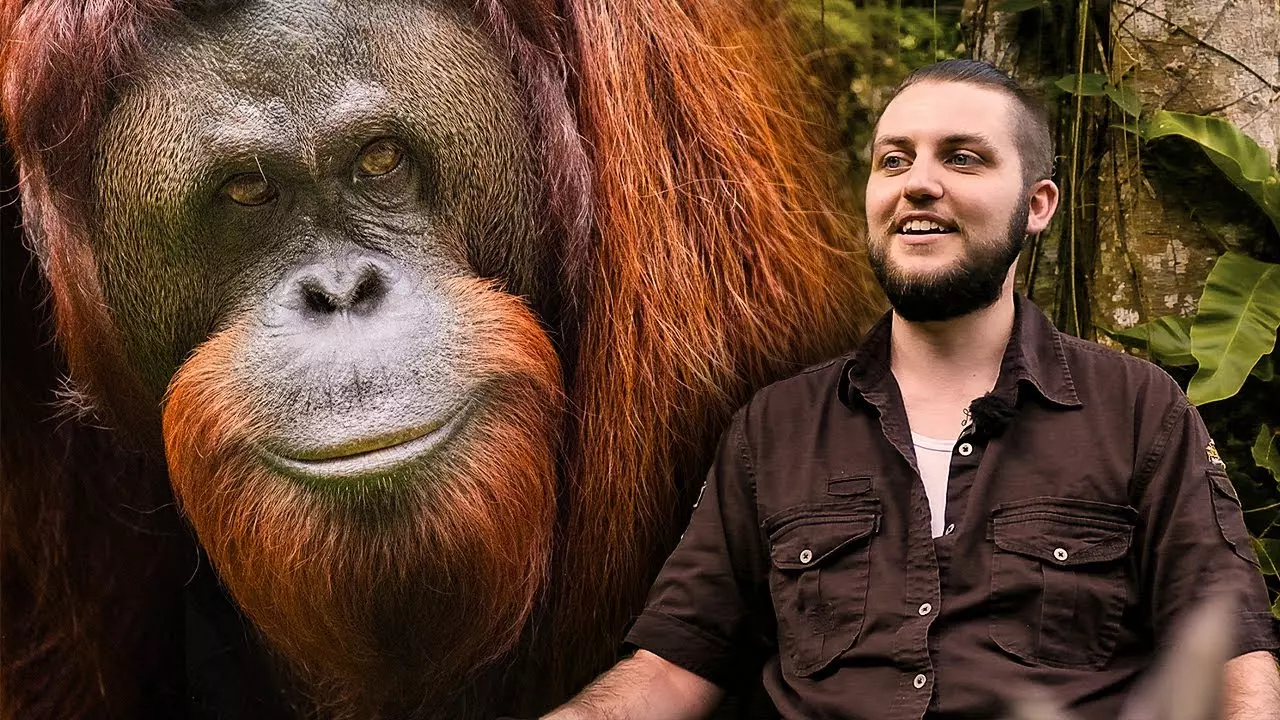
Volunteers Share Their Experiences
Hear from volunteers Alex, Kye, Carrie, and Rita as they share their experiences, favourite moments and what you can expect from volunteering with orangutans at Samboja Lestari.
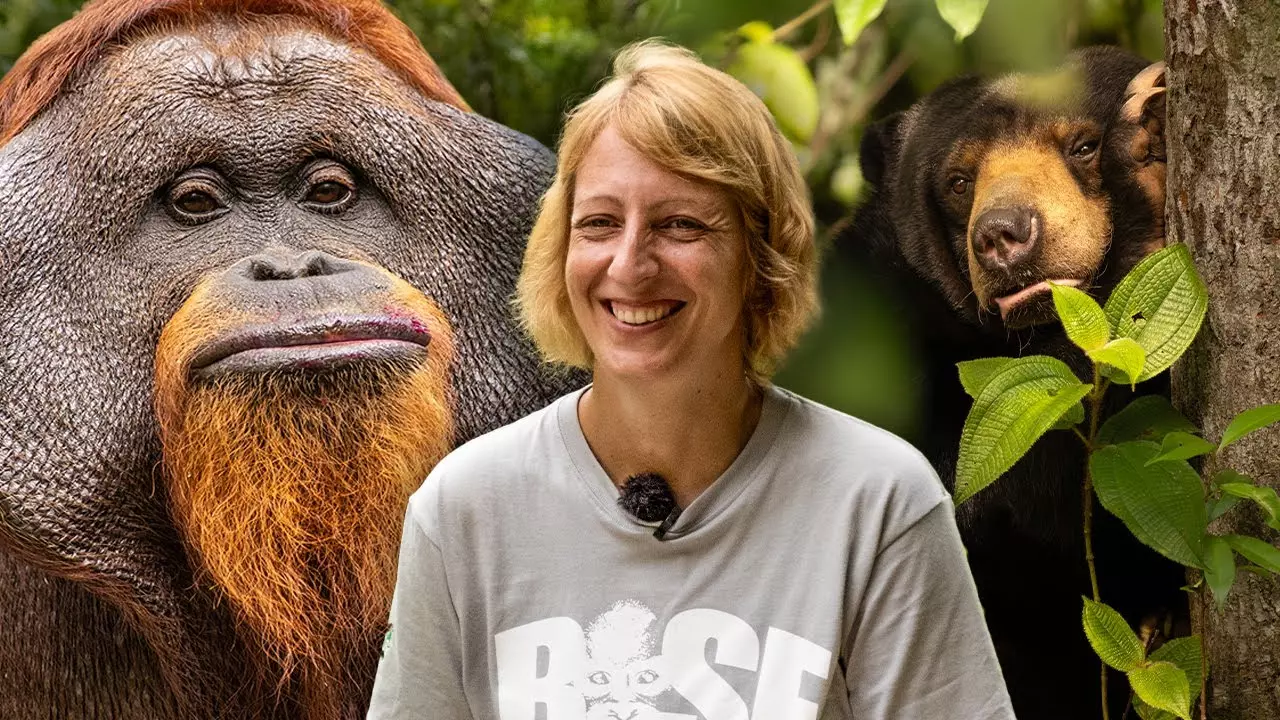
An interview with Kate - Our Volunteer Coordinator!
Join Kate, The Great Projects' Volunteer Coordinator at Samboja Lestari, as she explains how joining this project leaves a lasting impact on the resident wildlife and what you can expect from participating as a volunteer.
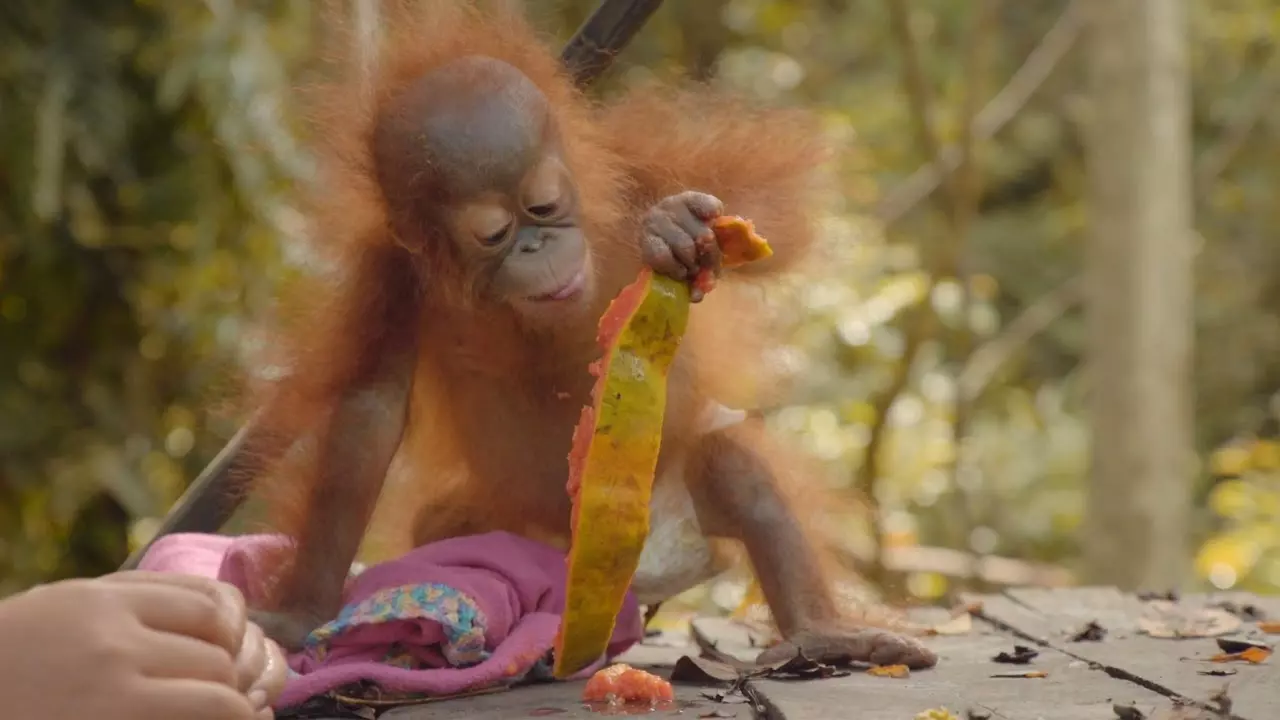
Catherine's Experience at Samboja Lestari
Take a look at wildlife adventurer Catherine Capon's trip to Samboja Lestari and discover what volunteering with orangutans is really like!
Gallery
News & Stories

Checking in on Isti
UPDATE | Feb 2026
Meet Isti, one of the long-term residents of the Samboja sanctuary islands. While some orangutans are preparing for release, Isti cannot return to the wild. Instead, she lives on a protected forested island where she can climb, forage, build nests, and enjoy space and freedom. With daily care and close health monitoring, Isti can live a safe, fulfilling life as close to the wild as possible.

A new Chapter for Two Unreleasable Orangutans
UPDATE | Jan 2026
Orangutans Jujun and Vera have been relocated to Sanctuary Island #5. Both are classed as unreleasable, unable to return safely to the wild due to their histories and long-term care needs, so the islands offer the closest possible alternative. After months of preparation and health checks, the move gives them space, enrichment, and a more natural life beyond enclosures!
NEWS | Jan 2026
Limited on time, want to volunteer more, or just curious about how to maximise your 2026 UK bank holidays with smart annual leave planning? Check out our honest guide to bank holiday travel planning!
Reviews
What an incredible and soul-touching experience at the Samboja Lestari Orangutan Project! Spending time with the orangutans and sun bears was deeply moving and unforgettable. We had the opportunity to build hammocks and climbing structures for the sun bears, helping to keep their enclosures enriched and stimulating. It was such a joy to hide fruit and treats in the trees for them—encouraging their natural foraging instincts and keeping their skills sharp. And then the orangutans… they truly stole my heart. The creativity poured into making enrichment activities for them was inspiring. I brought along some donations from kind-hearted supporters, and it was wonderful to see the funds immediately put to good use—buying wood for a pre-release island that will help prepare the orangutans for life in the wild. Volunteer coordinator Kate was absolutely fantastic, and honestly, every single person there radiated kindness and dedication. You can feel the genuine love and care they have for the animals in everything they do. I would do it all again in a heartbeat!
What can I say this was my 2nd time spending 4 weeks there the whole project is amazing run by Kate and Wik. They both truly amazing dedication women that given many years and time to this project. I truly enjoyed every minute and loved the variety of activities and projects we did. I would 100% recommend this project if your looking you will not be disappointed. And be prepared to get dirty and wet bring old clothes.
Hard work but worthwhile and rewarding. Great teamwork, great food and leadership. Its 8 yrs since came and it is amazing how much progress has been made.
What's Included
- Airport transfers to and from Balikpapan
- Accommodation
- Three meals per day
- Tea, coffee and drinking water at the lodge
- All volunteer activities at the project site
- Canopy walk excursion
- River cruise along the Black River
- Conservation donation to the Samboja Lestari Orangutan Sanctuary
What's Not Included
- All flights
- Vaccinations and medical tests (which are required)
- Visas
- Soft or alcoholic drinks and extra snacks


































